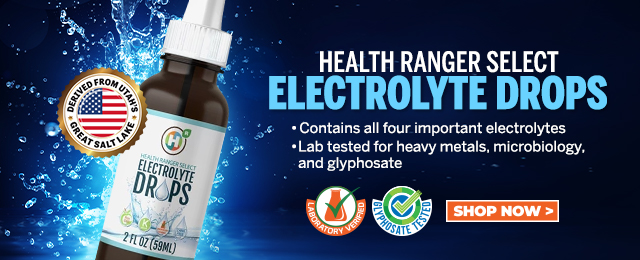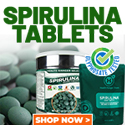
Statin drugs expose patients to dangerous, debilitating side effects
Monday, January 08, 2007 by: Alexis Black
Tags: statin drugs, high cholesterol, natural cures
- Oncologist warns of ‘terrifyingly aggressive’ cancers in children, linked to immune suppression from COVID vaccines
- NIH study, buried for decades, reveals that Flu Shots INCREASE elderly deaths, not prevent them
- Musk targets “strangely wealthy” lawmakers in DOGE probe, names Pelosi, McConnell, Schumer
- COVID-19 scandal linked to CANCER SURGE: Billionaire researcher sounds alarm
- Ancient kitchen secrets REVEALED: How garlic, ginger and green onions fight cancer and heart disease
- DARPA: The shadowy innovator behind the world’s most advanced military technologies
- Millionaire fitness coach charged in Tesla vandalism incident as anti-Musk attacks escalate
- “Ethically sourced” human “bodyoids” could usher in a new era of medical exploitation, raising disturbing ethical questions
- Newly released JFK files reveal Pentagon's role in creating Lyme disease and covid in the same lab
- European Court of Justice: Healthcare professionals who promoted or administered COVID-19 vaccines are CRIMINALLY LIABLE for any harm caused
- Britain’s descent into police state censorship: Parents raided for questioning their daughter’s school system online
- RFK Jr. is pushing Big Pharma ad ban - and corporate media is panicking
- Tackling the rubber waste crisis: Groundbreaking study reveals eco-friendly method to recycle tires
- Homesteading Boom: How families are escaping cities to grow their own food
- Joseph Farrell’s “The Cosmic War”: Did an interplanetary conflict reshape the solar system?
- NYT admits U.S. ran Ukraine war operations-Russia's victory exposes obsolete NATO tactics, says Mike Adams
- Utah governor allows ban on LGBT pride flags in public buildings and schools, will take effect without his signature
- Civil war is here – Multiple events, from conservatives being “swatted,” to attacks against Telsa owners, happening across America as Dem politicians are telling supporters to ‘fight in the streets”
- Newly released JFK files reveal Pentagon's role in creating Lyme disease and covid in the same lab
- CDC finally halts $11 billion COVID funding scam as health officials admit the ‘pandemic’ was a fraud
- Analysis: The coming economic collapse, a mass uprising and Trump's three secret weapons to halt the growing revolt
- Kiss Your Genetic Privacy Good-Bye! 23andMe Gets Green Light to Sell Your Intimate Genetic Details to Anyone They Want
- Dr. Suzanne Humphries makes bombshell appearance on Joe Rogan podcast, exposing vaccine industry deception back to POLIOMYELITIS
- DEADLY DECEPTION: How COVID vaccines increased mortality rates and why authorities hid the truth
- Woman contracts WORLD'S DEADLIEST VIRUS after unknowingly being given the WRONG VACCINE
- Oncologist warns of ‘terrifyingly aggressive’ cancers in children, linked to immune suppression from COVID vaccines
- Here are TEN all-natural ways to protect your garden without using harmful chemicals
- Black cumin seed oil emerges as a powerful ally against breast cancer and chronic inflammation
- The hidden dangers in your kitchen: How cooking methods impact diabetes, cancer and aging
- Trump's greatest betrayal so far: Accelerating Middle East wars, silencing dissent, and serving Zionist masters
- Senate Democrats deny censorship industrial complex existed, defend government's role in silencing dissent
- Sugar-free deception: Artificial sweeteners hijack hunger signals, fuel obesity epidemic, study warns
- “Independent” anti-Russia outlet MEDUZA faces COLLAPSE as US funding dries up
- NIH study, buried for decades, reveals that Flu Shots INCREASE elderly deaths, not prevent them
- The Health Ranger releases “Vaccine Zombie” song and music video, using AI-animated zombies for the music video
- Discovery of vast underground city beneath Giza pyramids challenges human history
- Newly released JFK files reveal Pentagon's role in creating Lyme disease and covid in the same lab
- California's social media censorship law struck down: A victory for free speech or a threat to online safety?
- EPA advisor admits the agency is funneling billions to climate groups ahead of Trump’s return to White House
- The Health Ranger releases “Vaccine Zombie” song and music video, using AI-animated zombies for the music video
- Dr. Mike Yeadon releases 15-minute testimony - WATCH - about genocidal intent of COVID “vaccines”
- Florida takes a stand: DeSantis proposes permanent ban on mRNA vaccine mandates
- Mike Adams releases country western hit single: Goin’ Back in Time is Comin’ Home
- “Why we influenced the 2020 elections”: Facebook files reveal the coordinated effort to bury the Hunter Biden laptop story
- Unpacking the Lies That We’ve Been Fed – new song and music video released by Mike Adams, the Health Ranger
- House Intelligence Committee calls for the ARREST and PROSECUTION of Dr. Anthony Fauci
- The pandemic as a tool for INDOCTRINATION: Understanding “The Indoctrinated Brain” by Dr. Michael Nehls
- Rep. Nancy Mace introduces bill to ban biological males from female facilities on federal property
- Mike Adams releases music poetry sensation: A Child of God
- Sugarcane extract superior to cholesterol-lowering drugs?
- Survival 101: Effective EMF blocking techniques
- Michigan sheriff announces criminal investigation into 2020 election crimes, Dominion Voting Systems
- Peter Rost exposes Big Pharma corruption in his book “The Whistleblower: Confessions of a Healthcare Hitman”
- Migrants are taking advantage of recent hurricanes to scam residents and loot their homes
- Red Cross issues warning to stop blood plasma donations from vaccinated people
- Scientists confirm: GENIUS brain function can be spontaneously unleashed in humans without any apparent cause
- EPA advisor admits the agency is funneling billions to climate groups ahead of Trump’s return to White House
- HYSSOP: What research reveals about the health benefits of this ancient holy herb
- Two containers with completed ballots fall out of truck in Florida
- Fully vaccinated about to see “tsunami” of illness and death, warns virologist
- Global leaders unite to clamp down on “misinformation” with UN-backed Cascais Declaration
- BREAKING: 2025 NDAA authorizes mandatory military draft of WOMEN across America… as Pentagon pursues global NUCLEAR war with both Russia and China at the same time
- Michael Yon warns of a ZIONIST TAKEOVER in Trump’s second administration
- BOMBSHELL: DNA testing kits are a SCAM to develop ethnic-specific bioweapons
- Ozempic and Wegovy weight loss drugs are injectable LIZARD VENOM PEPTIDES that may unleash a devastating wave of organ failure… side effects align with symptoms of SNAKE BITES
- Israeli soldiers accused of even more torture and abuse in the West Bank
- These 13 countries just signed an agreement to engineer a global FAMINE by destroying food supply
- NASA admits that climate change occurs because of changes in Earth’s solar orbit, and NOT because of SUVs and fossil fuels
- RFK Jr. clears key hurdle: Sen. Susan Collins backs controversial HHS nominee, signaling a new era for health policy
- Sermon 30: How Jesus reveals Caesar’s FAKE CURRENCY and FALSE AUTHORITY
- Coriander seeds: Ancient medicine backed by modern science
- Arizona officials claim Maricopa County needs 10-13 days to tabulate results of the election
In 2001, patients filled more than 57 million prescriptions for Lipitor, a drug that promises to reduce high levels of LDL (bad) cholesterol while increasing levels of HDL (good) cholesterol. Proponents of Lipitor and other statin drugs claim that they, in addition to normalizing cholesterol levels, can reduce inflammation and reduce the risk of heart attack, stroke and heart-related deaths in general. What doctors and pharmacists are less likely to explain in full to patients, however, are the potential side effects of drugs like Lipitor -- side effects that can outweigh any potential good the drugs might purport to do.
Undoubtedly, the huge number of prescriptions filled for Lipitor and other statin drugs in recent years correlates with the numerous direct-to-consumer advertisements screaming the benefits of these drugs over television and radio airwaves. But what about the list of possible side effects rattled off at the end of these ads -- usually at an auctioneer's pace or in a lulling, comforting voice that makes them sound insignificant compared to the drug's power to improve your health? As it turns out, the side effects mentioned by the ads' unseen spokesperson are just the tip of the iceberg.
Dr. Matthew Budoff, author of "Enhancing Heart Health," writes that cholesterol-lowering drugs like Lipitor "work by inhibiting the enzyme needed to manufacture cholesterol in the liver. However, these drugs also block the manufacture of important nutrients like CoQ10, which has been shown to benefit heart health. The other main drawback of this class of drugs is debilitating muscle pain ... Other side effects, according to the Physicians Desk Reference, include liver problems, nausea, diarrhea, abdominal pain, headaches and skin rash."
Aching muscles are especially common among statin drug users, and according to Bottom Line Yearbook 2002, muscle ache can actually be a sign that body tissues are breaking down, which can lead to serious kidney damage. Other, less common -- but no less disturbing -- side effects can also occur as a result of taking statin drugs, as is illustrated by the following patient account in "Overdose" by Jay S. Cohen: "Last of all my doctor prescribed Lipitor, and after several months I found I was having trouble remembering names and coming up with the right word. At dinner once, I said, 'Please pass the elephant,' though I wanted the bread. I told my husband that I thought I'd had a stroke. In January, a friend came to visit. She was worried about her memory and couldn't think of her daughter's name on the telephone. She too was on Lipitor. I asked my doctor to prescribe a different cholesterol medicine. Within a couple of weeks I was more mentally alert. But my friend (still on Lipitor) was in worse shape and afraid she would lose her job. Her doctor said forgetfulness could not be due to the drug. She finally stopped taking Lipitor and now is much sharper."
Cohen writes that he has heard more complaints about side effects from Lipitor than all of the other drugs in its class combined. "Perhaps this is because the standard dosage of Lipitor is so strong; it is far stronger than many patients actually need or can tolerate," he writes. Indeed, the recommended dosage of Pfizer's Lipitor is notably high -- usually 10 mg or higher. Cohen writes, "The Lipitor dosage guidelines do not distinguish between patients with or without heart disease. They do not distinguish between patients requiring large reductions and those needing small reductions. The recommended initial dose of Lipitor, 10 mg, is so powerful that doctors can treat many patients with the same dose and not have to bother matching the dose to individual patients."
In other words, Pfizer standardized its dosage recommendations for Lipitor in order to make it easier for doctors to prescribe the drug -- a convenience for the drug company and the doctor perhaps, but certainly not for the patient.
When it comes to statin drugs, Americans are being overdosed with prescription medications they probably don't even need in the first place. We now know that high doses of these drugs can have serious side effects in many areas of health. To avoid getting hooked on these dangerous drugs, talk to a health practitioner, like a naturopath, who can discuss with you natural ways to improve your cholesterol levels. Don't just turn to mega-doses of Lipitor for help.
The experts speak on Lipitor.
Claimed benefits
The statins--Lipitor, Zocor, Pravachol, Mevacor, Lescol--were the best-selling group of drugs in America in 2001. There's no doubt that statins help millions by reducing heart attacks, strokes and overall cardiac mortality.Disease Prevention And Treatment by Life Extension Foundation, page 713
Statin drugs--the prototype of which is Lipitor (atorvastatin), though there are many others--not only lower high cholesterol, they also appear to have a protective anti-inflammatory effect against AD.
Dr Isadore Rosenfeld's Breakthrough Health By Isadore Rosenfeld MD, page 9
There are several other statins sold by pharmaceutical firms (Lipitor,Pravachol. Zocor, Baycol, Lescol). All these lower cholesterol.
A Physicians Guide To Natural Health Products That Work By James Howenstine MD, page 223
Besides normalizing blood fats, statin drugs such as Lipitor (atorvastatin) and Pravachol (pravastatin) also reduce inflammation, thus stabilizing any plaques in your coronary arteries and reducing the likelihood of their clotting. They have been shown to lower C-RP by 15 to 25 percent. A recent study shows that high doses of statin drugs (80 milligrams of Lipitor) decreased C-RP levels by almost 30 percent in patients with type 2 diabetes (who are especially vulnerable to vascular disease).
Dr Isadore Rosenfeld's Breakthrough Health By Isadore Rosenfeld MD, page 127
Statin drugs, such as Lipitor or Pravachol, or Zocor, are commonly used to treat high lousy (LDL) cholesterol levels, and some of them, such as Lipitor, also increase healthy (HDL) cholesterol levels.
The Real Age Diet by Michael F Roizen MD and John La Puma MD, page 77
Researchers taking another approach are evaluating the effect of the cholesterol-lowering statin drugs on patients with MS. These medications include Zocor (simvastatin), Pravachol (pravastatin), Lipitor (atorvastatin), and Lescol (fluvastatin) and their benefits seem to be endless. Although they're mainly used to normalize elevated cholesterol levels, other beneficial effects include reducing the risk of Alzheimer's, shrinking obstructive plaques in the arteries, protecting against stroke, an anti-inflammatory effect on blood vessels, and perhaps reducing the risk of osteoporosis in vulnerable women.
Dr Isadore Rosenfeld's Breakthrough Health By Isadore Rosenfeld MD, page 190
When used properly, Pravachol, Zocor, Lipitor, Mevacor, Lescol, and Baycol are excellent drugs.
Overdose by Jay S Cohen, page 10
Disadvantages
Another good illustration of this problem is with the use of Mevacor, Zocor, Lipitor, or any other HMG-CoA reductase inhibitor ("statin" drug). All of these drugs can cause liver damage. Studies have shown damage occurring approximately 2 percent of the time. Because of this tendency, drug companies have encouraged physicians to get baseline liver functions with follow-up tests six and twelve weeks after starting the medication, and periodically thereafter. If tests detect no problems with elevated liver enzymes, the patient can continue taking the medication with liver functions checked periodically--for example, every three to six months--for as long as he uses the drug. Patients on these medications should also be aware of potential muscle damage.Death By Prescription by Ray D Strand, page 198
Zocor and Lipitor, which are taken to lower cholesterol, can produce symptoms that mimic the flu. Doctors can easily miss the connection, but muscle aches may signal tissue breakdown. That can lead to serious kidney damage.
Bottom Line Yearbook 2002 by Bottom Line Personnel, page 13
As it turns out, at least 81 more deaths were connected to Baycol's sisters -- Mevacor, Pravachol , Zocor, Lescol, and Lipitor.
Prescription Medicines, Side Effects and Natural Alternatives by American Medical Publishing, page 61
Five statins remain on the market--lovas-tatin (Mevacor), simvastatin (Zocor), pravas-tatin (Pravachol), atorvastatin (Lipitor) and fluvastatin (Lescol). Each of these can cause myositis.
Bottom Line Yearbook 2004 by Bottom Line Personnel, page 199
Testimonials
Even though I don't have high cholesterol, I take great interest in all those television commercials for the cholesterol-lowering drug atorvastatin (Lipitor). The ads must be working, because prescriptions for Lipitor are ringing up to the tune of $3.6 billion a year. I realize that some people with very high cholesterol may need Lipitor. But I can't help thinking that many others are taking this expensive medication unnecessarily.Anti-Aging Prescriptions by James Duke PhD, page 412
Marlene had a serious reaction to Lipitor, so her doctor switched her to Zocor. When another reaction occurred, he switched her to Pravachol. After another reaction, she quit treatment. "If a medication doesn't work or causes side effects," a pharmacist said years ago, "most physicians just switch from one to another, then another, then another, until they either find a drug that works, or they or the patient give up."
Disease Prevention And Treatment by Life Extension Foundation, page 724
Dosages
The number one statin drug sold in the United States is Lipitor, which is typically prescribed in doses of 10 mg and higher. There are studies, however, showing that as little as 2.5 mg a day is effective for many people.Disease Prevention And Treatment by Life Extension Foundation, page 708
Lipitor is the top-selling drug for treating high cholesterol and, prescribed 48,791,000 times in 2000, the second best-selling drug overall. Lipitor is marketed at a very strong initial dose, the most powerful initial dose in lowering cholesterol of all of the drugs of its group. Thus, Pfizer Inc can impress doctors and patients that the initial dose of Lipitor reduces cholesterol to preferred levels better than any other drug. This claim is used extensively in Lipitor's advertising, and it has been instrumental in Lipitor's surpassing well-established, better-proven competitors such as Zocor and Pravachol. The catch is that most side effects with these drugs are dose-related. The more potent the dosage, the greater the risk of side effects. Moreover, although patients will take Lipitor for decades, we have no idea whether unforeseen, long-term side effects may occur-- and potential long-term side effects will likely be dose-related. So while Pfizer boasts that Lipitor is so strong that doctors only have to prescribe the initial dosage to most patients, it doesn't mention that this dosage is 100 to 400 percent greater than millions of patients need. I have been contacted by patients who have had awful reactions to Pfizer's recommended initial dose of Lipitor. There are Web sites with hundreds upon hundreds of cases, some so severe that people are disabled. Many of these reactions might have been avoided by using lower, safer, proven-effective doses of Lipitor--doses that better fit these patients' needs and tolerances--but these doses are not even mentioned in Lipitor's package insert or PDR description.
Overdose by Jay S Cohen, page 26
People with mild cholesterol elevations usually don't need high potency doses of Lipitor and Zocor, but doctors prescribe them anyway even when milder statins-- Pravachol, Mevacor, Lescol--would do.
Disease Prevention And Treatment by Life Extension Foundation, page 20
How might you know if you are responsive to low-dose Lipitor, Zocor, or other statin drugs? Easy: by starting low and, if necessary, increasing gradually. In other words, by working with a doctor who recognizes the importance of matching the dosage to the individual. Not only does this reduce the risk of side effects for people sensitive to these drugs, but it also reduces problems for people who ultimately require high dosages, because their bodies are given adequate time to adjust to the drug, and because they are assured that the higher dosage is necessary.
Overdose by Jay S Cohen, page 101
Liver enzyme elevations signify liver injury. So if you get 10 mg of Lipitor when you only need 2.5 mg, your risk of liver injury is also quadrupled.
Disease Prevention And Treatment by Life Extension Foundation, page 20
Contraindications
Thirteen liver failure cases and nine deaths were linked with Lipitor. In response, the FDA has recommended the addition of warnings to Statin package inserts about the possibility of liver failure.Overdose by Jay S Cohen, page 98
Statins, including Baycol, Lipitor and Zocor. These drugs have proven to be extremely effective in lowering cholesterol, and thus helping people avoid heart attacks, high blood pressure, strokes and other diseases. Yet, these drugs have now been proven to kill. That's because in addition to melting cholesterol, the statins also tend to dissolve healthy muscle tissue, causing muscles cells to foul the kidneys and kill people.
Disease Prevention And Treatment by Life Extension Foundation, page 711
Yet, there's no information about 2.5 or 5 mg of Lipitor in the package insert or PDR and no pills in these doses, so doctors start everyone at 10 mg, or even 20 mg or 40 mg.
Prescription Medicines, Side Effects and Natural Alternatives by American Medical Publishing, page 118
Doctors should tell the millions of patients who are taking Lipitor, Celebrex, Prilosec, Zoloft, and many other drugs that the long-term safety of these drugs has not been proven and that new side effects are often discovered years and decades after drugs are approved.
Overdose by Jay S Cohen, page 306
If you take atorvastatin (Lipitor) for lowering cholesterol or nifedipine (Procardia) for controlling high blood pressure, do not take ginkgo. Doing so could result in a dangerous buildup of the drugs in the bloodstream.
Bottom Line Yearbook 2004 by Bottom Line Personnel, page 70
Just because Pfizer says Lipitor should be dosed at 10 20 40 mg, it doesn't mean you must follow that regimen. Perhaps 15 mg is your ideal dose. Or 30 mg.
Overdose by Jay S Cohen, page 20
The American Medical Association states that the difference in people's response to a specific drug can vary "4- to 40-fold" (AMA 1994). With such variability, it isn't surprising that some people can drink a pot of coffee without problems while others can't handle a cup. Similarly, it isn't surprising that some people need 80 mg of the antidepressant Prozac or the cholesterol-lowering drug Lipitor, while others need just 2.5 mg.
Disease Prevention And Treatment by Life Extension Foundation, page 20
Study / Research Results
Some drugs you are taking every day may work as well if you take them every other day. In a study published in the American Heart Journal (Matalka et al. 2002), a comparison was done using the cholesterol-lowering drug Lipitor every day or every other (alternate) day. The findings showed that alternate-day dosing was comparable to dosing every day. The patients were started at 10 mg and their dose increased to 20 mg if needed. The every day dosing schedule required a mean of 12 mg/day of Lipitor to sufficiently lower cholesterol, whereas the alternate day group only required a mean 9 mg/day to achieve similar effects. The doctors concluded the study abstract by stating: "these results suggest that the alternate-day administration of atorvastatin (Lipitor) can produce a reduction in LDL-C comparable to that of daily administration in patients with hypercholesterolemia, and yet provide some cost savings." What was not revealed in this study was the enormous amount of the cost savings. The cost of taking 10 mg of Lipitor every other day is only $30.00 a month. If 20 mg of Lipitor is needed every other day, the cost of 15 20-mg tablets comes out to about $44.00 a month. Armed with this knowledge, the Lipitor consumer can save 50% ($30.00 each month) if they find they need only 10 mg of Lipitor every other day. If 20 mg of Lipitor is needed every other day, the consumer saves 26% ($16.00 each month). Anyone contemplating changing their dosing schedule of any drug should notify their physician and verify that the changed dose is working. In the case of Lipitor, one would want to check LDL, HDL, C-reactive protein and total cholesterol blood levels within 45 days of changing the dose. While "statin" drugs like Lipitor are taken primarily to lower cholesterol, a side benefit is that they also lower the more dangerous C-reactive protein. New studies confirm that C-reactive protein is a greater risk factor for heart attack and stroke than is cholesterol.Disease Prevention And Treatment by Life Extension Foundation, page 709, 710
In the Prove It study, the people over the age of 65 derived no greater benefit from Lipitor than from Pravachol, one of the earlier statins.
Overdosed America by John Abramson MD, page 247
Case Study
Recent research indicates that at least for Lipitor (atorvastatin), one of the most commonly used drugs to lower cholesterol levels, taking the pill every other day instead of daily has the same effect on blood levels. Check with your doctor to see whether this applies to other members of the statin family of medications.Dr Isadore Rosenfeld's Breakthrough Health By Isadore Rosenfeld MD, page 190
Duane Graveline's first dose of Lipitor caused amnesia "so severe that I landed in the emergency room of a hospital near my Vermont home. I didn't remember any of it." Dr. Graveline, a retired family doctor, flight surgeon and astronaut (www.spacedoc.net), was perplexed. After all, he wasn't usually sensitive to medications, and he'd taken only 10 mg, the lowest dose recommended and marketed by the manufacturer. Yet, 10 mg of Lipitor is very strong, much stronger than many people need. It was much stronger than Dr. Graveline needed, because he needed only 2.5 mg of Lipitor--75% less medication than he got. How do we know? Experts advise doctors to select statin doses based on the reduction in LDL-C (the bad, low-density-lipoprotein cholesterol) that each person needs (NCEP 2001). Ten milligrams of Lipitor reduces LDL-C 39%, a strong response needed by cardiac patients and people with severely elevated cholesterol. But most people with high cholesterol have mild-to-moderate elevations and no cardiac history, and they require only 20% to 30% reductions in LDL-C. This can be attained with only 2.5 mg.
Disease Prevention And Treatment by Life Extension Foundation, page 713
Pfizer doesn't provide any information in its package insert or the PDR about the effectiveness and reduced risks of low-dose Lipitor, and it doesn't produce low-dose pills. Physicians have to discover the effectiveness of low-dose Lipitor on their own. Charles was 67 when his doctor prescribed Lipitor at the standard 10-mg dose. When Charles's muscles began to ache, his doctor told him to split the pill in half. The aching stopped, and three months later, Charles's LDL-C had dropped from 187 to 103--a 45-percent reduction with just 5 mg of Lipitor. Charles's response to low-dose Lipitor is not surprising. Although drug companies only provide information about "average" cholesterol reductions, the variability in response between patients is quite large. A 2000 study in the American Journal of Cardiology found: "Individual variation in LDL-C response to statin therapy is large (range 10% to 70%)." Many patients can obtain excellent responses with low-dose statins-- if their physicians remember that individual variation should be considered whenever prescribing any medication. There is another benefit of using low-dose statins: When his doctor reduced his dosage to one half of a pill, Charles's costs for the Lipitor, a very expensive drug, were also halved.
Overdose by Jay S Cohen, page 98
Media
Turn on the television set any time and you will see a drug commercial. Begin with one of the morning shows, Good Morning America, and Pfizer's Lipitor. A female announcer says: "For millions of adults with high cholesterol, diet and exercise aren't always enough. But adding Lipitor can help lower your total cholesterol 29 percent to 45 percent. … So take the next step--ask your doctor if Lipitor is right for you."Critical condition by Donald L Barlett and James B Steele, page 9
General
Lipitor is the best-selling drug In America. In 2001, patients filled more than 57 million prescriptions for Lipitor, and sales are skyrocketing.Disease Prevention And Treatment by Life Extension Foundation, page 20
In 1998, Lipitor, the largest selling statin drug, was the third leading drug in the United States, accounting for over $1,544 billion in sales.
The Nutritional Cost of Prescription Drugs by Ross Pelton RPH and James B LaValle RPH, page 103
Claritin, Lipitor, Viagra, Prilosec, Celebrex, and Vioxx--these and other products worth $500 million or more in annual sales account for over 50 percent of total drug sales in the United States, up from 28 percent for the year ending July 1997, according to IMS Health.
The Big Fix by Katharine Greider, page 164
Settlement agreements in fraud cases with other pharmaceutical companies in recent years included $49 million from Pfizer Inc. over Lipitor, the cholesterol-lowering drug.
Critical condition by Donald L Barlett and James B Steele, page 9
"A decade ago we didn't worry about a person's cholesterol. Now we have Zocor, Mevacor, Lipitor--there are four or five drugs that are used by a very large proportion of the population for years."
The Big Fix by Katharine Greider, page 175
The best-selling statins as of 2003 were Lipitor, Pravachol, and Zocor.
Overdosed America by John Abramson MD, page 134
A British doctor, Dr. Sidney Wolfe, is head of a consumer advocacy group called Public Citizen. He is preparing a petition for the FDA to strengthen warnings on all other statin class drugs, including the popular Lipitor, Pravachol, and the others.
Prescription Medicines, Side Effects and Natural Alternatives by American Medical Publishing, page 57
Effective, safer, lower doses of top-selling drugs such as Prozac, Voltaren, Celebrex, Lipitor, many antihypertensive drugs, etc., have yet to be widely recognized, and important low-dose information has yet to be provided in drug-company product information or many drug references.
Overdose by Jay S Cohen, page 144
The alchemy of naming turns the rather awkward atorvastatin into Lipitor, which combines the word for blood fats, "lipid," with a hint of the avenging action hero.
The Big Fix by Katharine Greider, page 96
Statin drugs at FETCH.news
Get independent news alerts on natural cures, food lab tests, cannabis medicine, science, robotics, drones, privacy and more.
Take Action: Support Natural News by linking to this article from your website
Permalink to this article:
Embed article link: (copy HTML code below):
Reprinting this article:
Non-commercial use OK, cite NaturalNews.com with clickable link.
Follow Natural News on Facebook, Twitter, Google Plus, and Pinterest
Science News & Studies
Medicine News and Information
Food News & Studies
Health News & Studies
Herbs News & Information
Pollution News & Studies
Cancer News & Studies
Climate News & Studies
Survival News & Information
Gear News & Information
News covering technology, stocks, hackers, and more



"Big Tech and mainstream media are constantly trying to silence the independent voices that dare to bring you the truth about toxic food ingredients, dangerous medications and the failed, fraudulent science of the profit-driven medical establishment.
Email is one of the best ways to make sure you stay informed, without the censorship of the tech giants (Google, Apple, Facebook, Twitter, YouTube, etc.). Stay informed and you'll even likely learn information that may help save your own life."
–The Health Ranger, Mike Adams













































